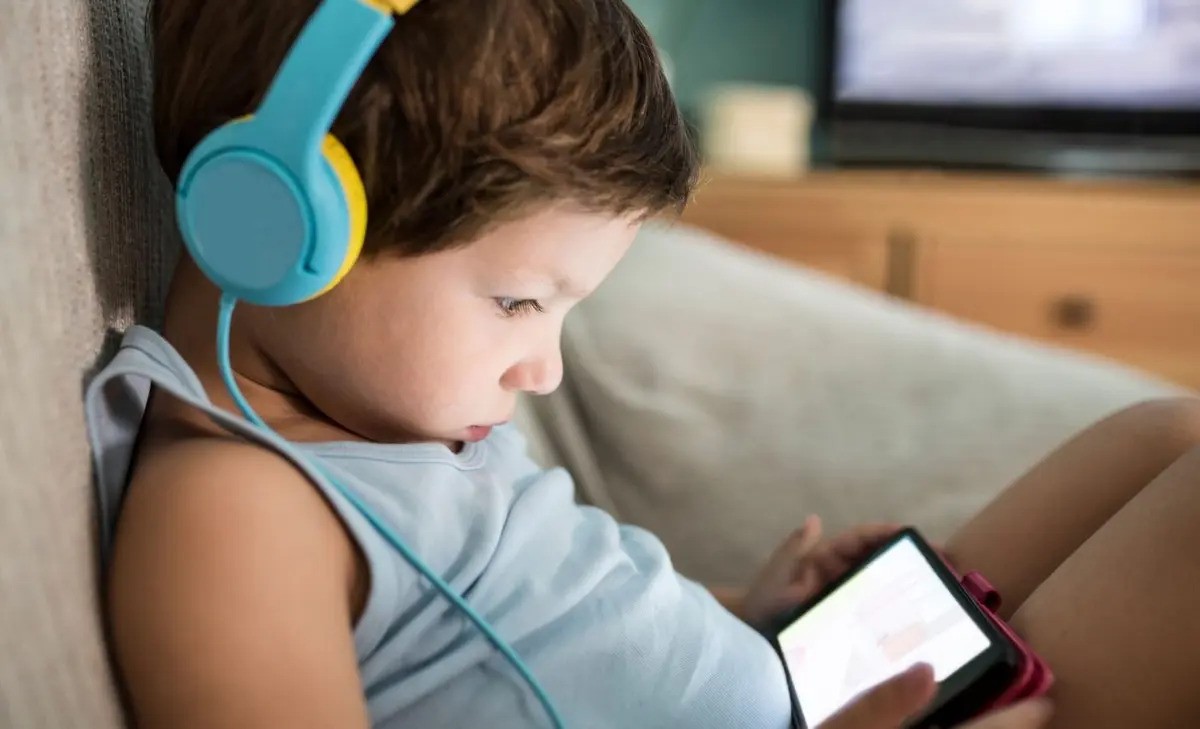Sweden has issued a strong message to parents. According to which toddlers should not have any screen exposure. The Swedish Public Health Agency advises that children under the age of two should avoid digital media entirely. This guidance may seem challenging in today’s tech-driven world, but Swedish authorities are firm in their stance.
As children grow, the agency recommends strict limits on screen time. For children aged two to five, screen time should not exceed one hour per day. For children aged six to twelve, the agency suggests a maximum of two hours daily.
Screen Time and Childhood Obesity
Recent research has linked screen time during meals to an increased risk of childhood obesity. Watching TV or using phones at the dinner table may seem harmless, but it can negatively impact children’s health. The Swedish Public Health Agency has extended its caution to children under two, reinforcing the need for digital discipline.
“For too long, smartphones and other screens have been allowed to enter every aspect of our children’s lives,” said Jakob Forssmed, Sweden’s Minister for Social Affairs and Public Health. His statement echoes the agency’s recommendations, emphasizing the importance of controlling screen time in children’s lives.
Teenagers and Screen Time
The agency also offers guidelines for teenagers, advising 13 to 18-year-olds to limit their screen time to two to three hours per day. This recommendation is daunting, given that Swedish teens aged 13 to 16 currently spend an average of six and a half hours a day on screens outside of school hours.
Forssmed warned that excessive screen use among teens leaves little time for physical activity, social interaction, and sleep. He highlighted a “sleep crisis” in Sweden, with more than half of 15-year-olds not getting enough rest.
Protecting Children from Excessive Screen Use
To combat these issues, the health agency advises against using screens before bedtime. They recommend keeping digital devices out of bedrooms at night, citing research that links excessive screen use to poor sleep, depression, and body dissatisfaction.
Sweden’s government is considering more drastic measures. Officials have expressed interest in exploring a ban on smartphones in primary schools. A study published in January found that even one hour of iPad use per day can impact a toddler’s understanding of the world.
Research from Drexel University in Philadelphia revealed that screen exposure starting at age one doubles the risk of unusual sensory behaviors. The risk increases with each additional hour of screen time, underscoring the severity of the issue.
Parental Involvement is Key
Tackling the problem of excessive screen time requires active parental involvement. Parents who engage in their children’s activities can model healthy habits and encourage alternatives to screen use, such as reading, outdoor play, and community involvement.
By setting boundaries and having open discussions about digital media, parents can help their children understand the impact of screen time and develop healthier consumption habits. This approach can promote both mental and physical well-being, creating a healthier environment for children in today’s digital age.
Sweden’s recommendations and initiatives are steps in the right direction, addressing the growing concern of screen time and its effects on children.
Follow us on Instagram, YouTube, Facebook, Whats App, and TikTok for latest updates.
